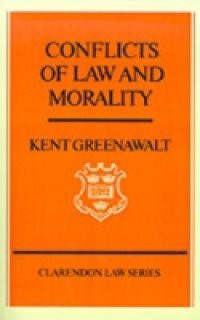Powerful emotion and pursuit of self-interest have many times led people to break the law with the belief that they are doing so with sound moral reasons. This study, a comprehensive philosophical and legal analysis of the gray area in which the foundations of law and morality clash, views these oblique circumstances from two perspectives: that of the person who faces a possible conflict between the claims of morality and law and must choose whether or not to obey the penal code; and that of the people who make and uphold laws and must decide whether to treat someone with a moral claim to disobey differently from ordinary lawbreakers. In examining the extent of the obligations owed by citizens to their government, Greenawalt concentrates on the possible existence of a single source of obligation that reaches all citizens and all laws. He also discusses techniques of amelioration of punishment for conscientious lawbreakers, asking how far legal systems should go to accommodate individuals who break the law for reason of conscience. Drawing from numerous examples of conflicts between law and morality, Greeawalt illustrates in detail the positions and predicaments of potential lawbreakers and lawmakers alike.

